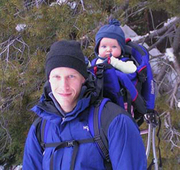Document Type
Article
Editor
Michael J. Prouix
Publication Title
PLOS One
Publisher
Ambra
Publication Date
9-2-2015
First Page
1
Last Page
22
Issue Number
9
Volume Number
10
Abstract/ Summary
We explore humans’ rule-based category learning using analytic approaches that highlight their psychological transitions during learning. These approaches confirm that humans show qualitatively sudden psychological transitions during rule learning. These transitions contribute to the theoretical literature contrasting single vs. multiple category-learning systems, because they seem to reveal a distinctive learning process of explicit rule discovery. A complete psychology of categorization must describe this learning process, too. Yet extensive formal-modeling analyses confirm that a wide range of current (gradient-descent) models cannot reproduce these transitions, including influential rule-based models (e.g., COVIS) and exemplar models (e.g., ALCOVE). It is an important theoretical conclusion that existing models cannot explain humans’ rule-based category learning. The problem these models have is the incremental algorithm by which learning is simulated. Humans descend no gradient in rule-based tasks. Very different formal-modeling systems will be required to explain humans’ psychology in these tasks. An important next step will be to build a new generation of models that can do so.
Repository Citation
Smith, David J. and Ell, Shawn W., "One Giant Leap for Categorizers: One Small Step for Categorization Theory" (2015). Psychology Faculty Scholarship. 22.
https://digitalcommons.library.umaine.edu/psy_facpub/22
Citation/Publisher Attribution
Smith JD, Ell SW (2015) One Giant Leap for Categorizers: One Small Step for Categorization Theory. PLoS ONE 10(9): e0137334. doi:10.1371/ journal.pone.0137334
DOI
doi:10.1371/journal.pone.0137334.g001
Version
publisher's version of the published document





